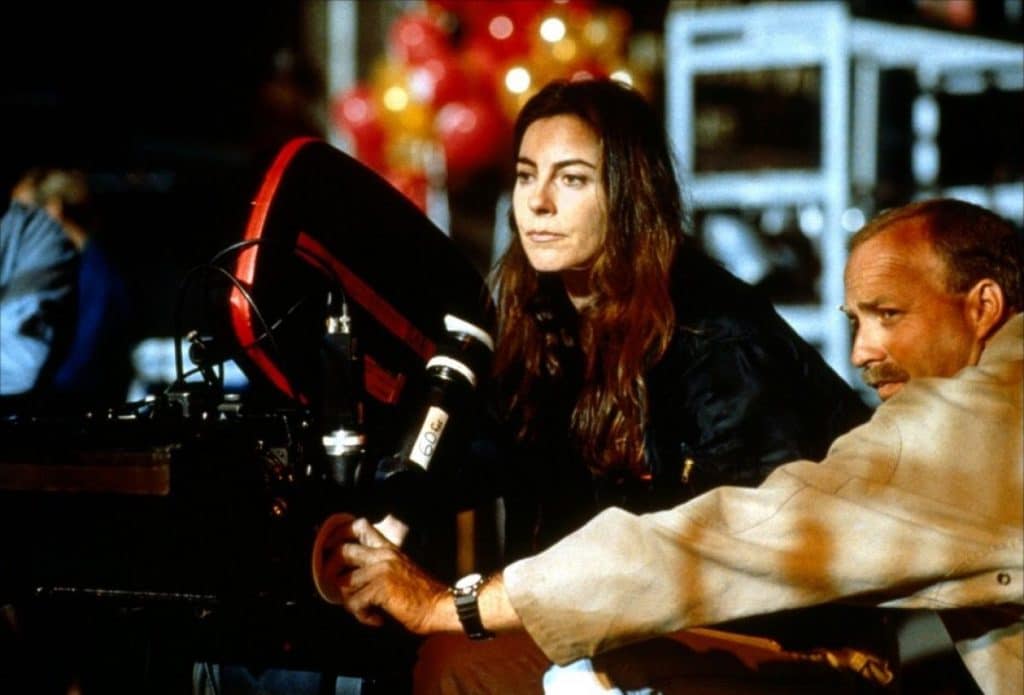Read also:
How to Watch FX Live Without CableHow To Watch AMC Without CableHow to Watch ABC Without CableHow to Watch Paramount Network Without CableAs the year winds down, we celebrate the films of Hollywood’s most high-profile female filmmaker, from her novel genre beginnings to her prestige political present.
Even at 63, with nine films under her belt, it’s hard to pin down a distinct style you can apply to every one of Kathyrn Bigelow‘s movies. In her early films, she tackled everything from biker gangs to corrupt cops to punk vampires eking out a fragile existence in the Heartland; her mind was firmly in the realm of tackling the conventions of popular genres and spinning them on their head.
Then came her prestige period, which started with the arguable-misfire K-19: The Widowmaker (a film that nonetheless carries a great deal of tragic weight to it) and culminated in her meditative Iraq-War polemic The Hurt Locker, which landed Bigelow an Oscar for Best Director (the first woman in history to do so). That she beat out ex-husband James Cameron’s Avatar is just the icing on the cake; no longer would she have to be counted as an also-ran, a woman making art in the shadow of her more famous partner.
That win seemed to crystallize her directorial concerns moving forward, as the two films to date she’s directed since (2013’s Zero Dark Thirty, similarly acclaimed, and 2017’s Detroit, less so) have followed that deep eye for historical fealty blended with emotional truth. They’re often cold, procedural films, ones presented with almost documentary-style alacrity (or at least the illusion of such) of the events in question, emphasized by the dialogue of her newfound creative partner, journalist and screenwriter Mark Boal.

Whether in her early genre work or these recent bouts with politically-minded docudrama, Bigelow’s work is intense and confrontational, clocking viewers upside the head with tragic characters stuck in impossible situations. Adrian Pasdar’s Caleb in her 1987 vampire-punk masterpiece Near Dark is a man trapped amid the constraints of vampiric life, even as it provides him an unconventional found family; so too does Jeremy Renner’s Sgt. James in The Hurt Locker lose his sense of humanity amid the adrenaline thrills of Iraq War bomb defusal. The crew of the Widowmaker, too, bristle against the sacrifices they’re asked to make by Mother Russia, even as their equipment and leaders fail them. Zero Dark Thirty‘s Maya similarly transforms into a heat-seeking missile of justice, even as her pursuit of bin Laden becomes exceedingly mechanical.
In all of these works, you can see Bigelow testing the stress points of vaunted American institutions — the police, the military, the family unit, American race relations — to see where they might fragment. Is the American apparatus all it’s cracked up to be? Or can a corrupt, racist cop or the ever-spinning wheels of bureaucracy undo the whole thing? Even when the system is working as designed, does it truly serve us? For better or worse, Bigelow’s films coalesce into a broader critique of these axioms of the country we live in, even while playing within the blockbuster expectations of Hollywood. And, with films like Hurt Locker and Point Break, she proves to be one of the rare filmmakers that truly gets the wounded yearning at the heart of modern masculinity.
Since this month sees Bigelow celebrating her 69th birthday, we decided to dedicate the month to her works thus far, from her early flirtations with genre to her more overt political monoliths. And along the way, hopefully, we’ll chart a course through America’s deepest foibles. (Plus, we’ll get to watch Keanu Reeves and Patrick Swayze trade bedroom eyes, so it won’t all be frowny faces.) Keep an eye on this space; we’ll fill it out as we publish essays on her filmography.
Read the rest of our Kathryn Bigelow coverage here:
There’s plenty to admire, though little to love, in “The Loveless”
In “Near Dark,” being a vampire really sucks
“Blue Steel” sees Kathryn Bigelow burrow deeper into her pet themes
In “Point Break” Kathryn Bigelow & Patrick Swayze created a great villain
“Strange Days” says more about 2020 than it did about 1999
“The Weight of Water” sets us adrift in sex, truth and time
“K-19: The Widowmaker” runs deep, but far from silent
“The Hurt Locker” told a starkly modern war story
“Zero Dark Thirty” refuses to take a stand
“Detroit” never flinches from its real life horror